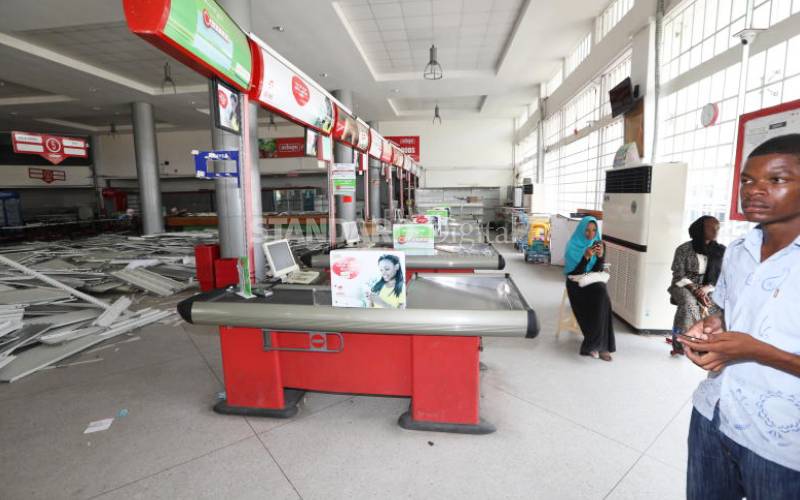×
The Standard e-Paper
Smart Minds Choose Us

Uchumi Supermaket's shelves at Mombasa's Moi Avenue in Mombasa County on April 24, 2018.
At the intense seven-hour annual general meeting (AGM) that saw Uchumi survive liquidation last week, Catherine Kamuri was asked to start the function with a “word” of prayer.